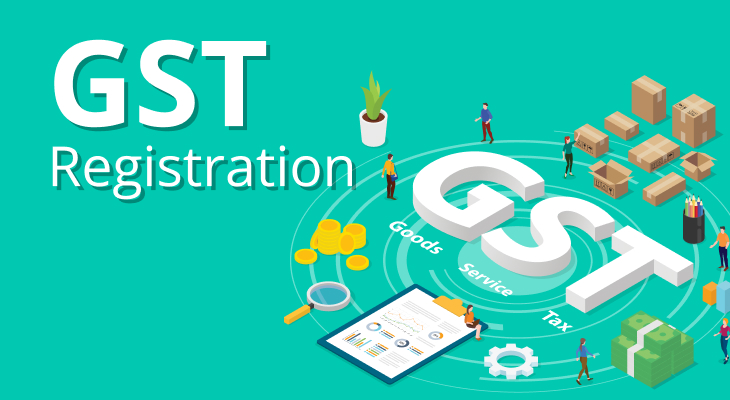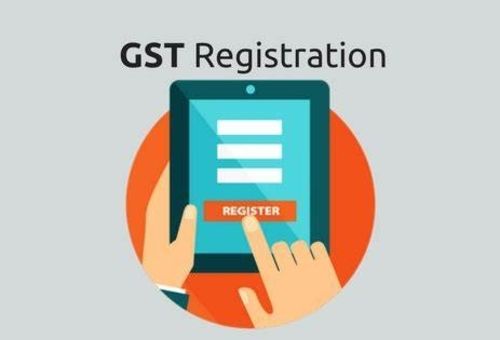Compare and Choose the Best GST Registration Services in Singapore for Your Demands
Throughout: The Ultimate Roadmap to GST Enrollment for Businesses Looking For Financial Stability
Navigating the intricacies of Goods and Solutions Tax (GST) registration is an important step for services making every effort for monetary security. From comprehending the basic principles of GST to abiding by post-registration standards, the procedure can appear intimidating in the beginning look. However, breaking down the roadmap into manageable steps can simplify the registration journey for organizations aiming to enhance their monetary standing. Allow's discover the crucial parts that compose this utmost roadmap and discover exactly how each phase contributes to laying a solid foundation for financial success.
Understanding GST Basics
Exploring the basic principles of Item and Solutions Tax (GST) is essential for gaining a detailed understanding of its implications on businesses and the economic situation. GST is a value-added tax imposed on a lot of products and solutions for residential intake. It has actually replaced multiple indirect taxes that existed in the pre-GST period, improving the tax obligation structure and improving ease of doing business in India. Under the GST system, both services and goods are taxed at a specific rate, which is figured out based on their classification. Companies are needed to register for GST if their annual turnover goes beyond the threshold restriction set by the federal government. Input Tax Obligation Credit (ITC) is a considerable feature of GST, allowing businesses to declare credit history for tax obligations paid on inputs, decreasing the total tax problem. Understanding the basics of GST is important for businesses to abide by tax laws, handle their finances successfully, and add to the country's financial development by taking part in a clear tax system.
Qualification Criteria for Enrollment
To register for GST, companies need to fulfill particular qualification requirements established by the government. The key eligibility need is that any type of service associated with the supply of products or services with a yearly aggregate turnover above the threshold limit set by the authorities should register for GST. As of the present guidelines, the threshold limitation for GST enrollment is a yearly accumulation turnover of 40 lakhs for companies operating within a state, except for special category states where the restriction is 20 lakhs. Additionally, specific companies are called for to sign up for GST regardless of their turnover, such as interstate providers, informal taxable individuals, and services liable to pay tax obligation under the reverse fee device. It is vital for companies to thoroughly evaluate their turn over and purchase types to establish their GST enrollment responsibilities accurately. Failing to register for GST when eligible can lead to penalties and lawful repercussions, making it vital for services to follow find this the specified qualification standards.
Files Needed for Registration
Having met the eligibility criteria for GST registration, businesses need to now guarantee they have the requisite files in location to continue with the registration procedure efficiently. The documents needed for GST enrollment usually consist of evidence of service constitution, such as collaboration act, registration certification, or unification certificate for different types of organizations. In addition, businesses need to provide papers establishing the major place of business, such as a rental contract or electricity expense.
Step-by-Step Enrollment Refine
Beginning the GST enrollment procedure involves a collection of structured steps to make certain a compliant and smooth enrollment for services. The primary site link step is to go to the GST portal and complete the registration form with precise information of business entity. Following this, the candidate gets a Short-lived Referral Number (TRN) which is used to resume the application procedure if it's not finished in one go.
Next, all called for records as per the checklist given by the GST portal need to be posted. These records generally consist of evidence of organization identification, address and enrollment proofs of promoters, economic declarations, and company entity's frying pan card.

Post-Registration Conformity Guidelines

Verdict
In final thought, businesses seeking monetary stability should recognize the fundamentals of GST, fulfill eligibility standards, collect needed files, adhere to the detailed enrollment procedure, and adhere to post-registration guidelines - Best GST registration services in Singapore. By adhering to these actions, businesses can guarantee compliance with tax obligation regulations and preserve economic security in the future
Furthermore, specific businesses are called for to sign up for GST regardless of their turn over, such as interstate vendors, informal taxed individuals, and organizations responsible to pay tax under the reverse charge system.Having actually met the eligibility requirements for GST enrollment, companies have to now guarantee they have the requisite files in area to proceed with the registration process efficiently. The files required for GST enrollment normally include proof of organization constitution, such as collaboration act, registration certificate, or consolidation certification for various kinds of services. Furthermore, organizations require to offer papers developing the major area of organization, such as a rental arrangement or electrical power bill.Beginning the GST registration process includes a collection of organized steps to guarantee a compliant and smooth enrollment for organizations.